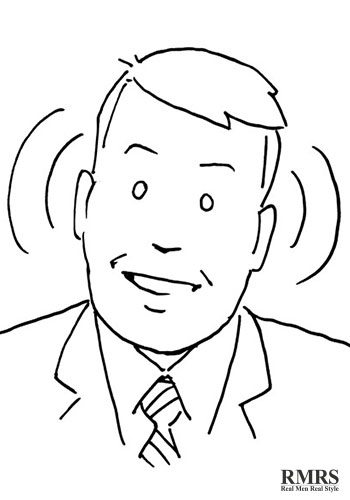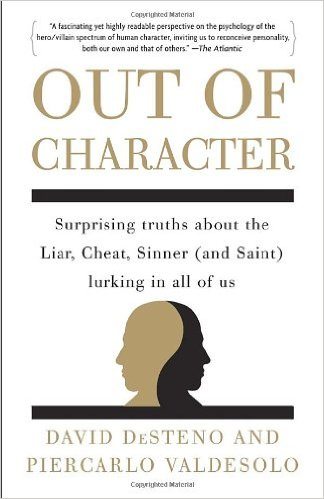Can I trust you?
It’s a question that crosses our mind instantly.
Research shows 90% of people act dishonestly if they believe they won’t be caught.
How do you distinguish the majority from the 10% who can be implicitly trusted?
Studies indicate that people’s accuracy in deciding whether to trust a new person is only slightly better than chance.
Success in life requires some willingness to cooperate with others, which requires having trust in them.
How do we choose to trust a new client, a partner, a contractor, or a potential date?
The question is how much should you trust someone? And whom should you trust?
Verifying each claim before making a decision results in lost opportunities.
We need a fail-proof system that will help us decide on the spot if we can trust a person.
According to research published in the Harvard Business Review, people often make these common trust mistakes:
1. Dependence on an individual’s history as a reliable marker for credibility.
2. A high level of faith in a person's confidence, rather than his/her competence.
3 Failing to build systems that override human nature and ignoring gut instinct.
We can improve our decisions by avoiding these mistakes to ensure our trust in people is not misplaced.
Click Here To Watch The YouTube Video – Who Can You Trust?
Click Here To Watch The Video On YouTube – 3 Common Trust Mistakes To Avoid
 Trust Mistake #1 – You Rely On History
Trust Mistake #1 – You Rely On History
We have been taught to assume that a person who was trustworthy in the past is deserving of our trust in the future.
Unfortunately, history is not a reliable indicator of a person’s credibility.
Past performance is not always an indication of future behavior. Reputation is not a stable trait, contrary to what we have been taught to trust.
In a book about the psychology of liars, David DeSteno and Piercarlo Vaidesolo arrived at the disheartening conclusion that 90% of people would choose a dishonest course of action if they believe there was no chance of them being caught.
That’s just human nature. We are imperfect beings. We are hardwired to seek out the possibilities that are in our best self-interest.
People make choices based on what's good for their short or long term benefit. Research shows that people are likely to change their actions based on the situation, rather than acting from a deeply-established set of values.
The trade-off between short-term and long-term gains is what motivates people, not necessarily a strong moral compass.
When someone breaks your trust by not delivering on promised work, they may reap an immediate reward in the short term, but they have lost the opportunity to build a cooperative partnership in the long run.
- A car salesman trying to beat the tax write-offs in June will push to close sales even if it involves putting pressure on customers to buy.
- An employee who has decided to resign and continues to sign off on deals with short term benefits but severe long-term consequences.
So, the real question – how do you prevent being cheated out of an agreement?
- Build systems and checks. If you are running a business, ensure that no one person has full access to the whole system. For your own integrity, respect systems set by society to stay on the right side of the law.
- Repeat interactions. Work with someone you see again and again. If it's a one-off, the person might sell you short knowing that they won't see you again.
A majority of people who cheat in a marriage would consider themselves morally upright people with strong values. However, they act dishonestly when they believe they won’t get caught. Anonymity saves them from long-term consequences.
This shows us that trustworthiness depends on circumstances, not on a person's history.
Trust Mistake #2 – We Fall For Confidence
A man in a sharp suits sends signals of confidence, leadership, trustworthiness and authority. But the suit is not an indicator of his skills.
It is easy to be fooled by confidence. We are willing and eager to believe that confidence is a marker for competence. After all, would you trust someone to run a profitable company when they seem unsure about themselves?
I teach you to dress well because it builds your confidence. But I also trust that you have good intentions.
A person’s capabilities need to match up to their honorable intentions.
This is a fact that our minds learn to recognize from an early age. Children in elementary school respond and receive information better from instructors who are perceived as being more competent in their teaching skills.
People who work their way up to leadership are often helped by a misplaced confidence which is boosted from other areas not relevant to their job role. Always check if an individual can back up a confident attitude with solid performance and aptitude.
How do you avoid the confusion between confidence and competence?
- Do your homework. When you perceive confidence in a company’s leaders – do your homework. Talk to previous and current employees, clients and suppliers to verify that the confidence is based on a solid reputation.
- Ask probing questions. Ask specific questions that poke around for holes in a person's pitch. If they are able to hold their ground, you're good to go.
Integrity isn’t everything, competence matters too.
Trust Mistake #3 – Relying On Your System & Not Your Intuition
Even the TSA and Homeland Security make mistakes when they rely on technology systems.
A report by the Government Accountability Office found that overtly trusting technology in airport security counters led to mistakes that could have been spotted by observant security officers.
Trust the machines, but always rely on gut instinct.
If you have a gut feeling, despite all positive indicators, trust your gut.
If you have a conflicting gut feeling when you meet someone, trust your intuition over the information that you have about the person. The least you can do is take some time to find out what your intuition is signaling about the person during your communication with them.
In a recent experiment with colleagues at Cornell and MIT, researchers set out to explore the connection between intuition and body language cues. Is there a subconscious process that triggers our gut instinct about a person based on their body language?
Participants were filmed having a brief conversation either face-to-face or through an online chat before they played a game that pitted cooperation against self-interest.
The level of cooperation was on average, equal in both groups.
However, people’s predictions for how fairly their partners would act when making monetary exchanges during the game were more accurate when they had previously interacted with them face-to-face.
This meant that some signals that created trust had to exist in face-to-face interactions.
The researchers compared sets of nonverbal cues collected from the recordings to see which of them predicted untrustworthy behavior.

- Crossing one's arms.
- Hands touching each other.
- Touching the face with hands.
- Leaning away from the partner.
Individually, these four cues are ineffective indicators of a liar, but the more a person expressed these four cues combined together, the less trustworthy he or she seemed to the observer.
The researchers repeated the experiment with one small change – participants conversed with a humanoid robot instead of a human. The robot had been programmed to express all four target cues as well as neutral ones.
The results with the robot expressing the target cues confirmed the earlier results. When participants saw the robot expressing the four target cues, they reported trusting it less and expected to be cheated during the game.
These findings reinforce how valuable our intuitions, or gut feelings, can be.
Who Can You Trust? Summarized
Getting better at trusting the right people is a learned practice. Remember these three trust mistakes and use them to overrule any notions about how trust works when you have a sense of your counterpart’s situation and can connect with them face-to-face.
When considering whom to trust, you need to keep the following three tips in mind:
- A person's reputation is not an absolute indicator of their continued trustworthiness.
- Assess an individual's or a company's competence before making big decisions.
- Rely on systems that help you make sensible decisions and listen to your intuition.
Click here for an article on how to spot a liar.
Links To Studies & Tests Mentioned Above
- Harvard Business Review Article On Decision Making And Trust
- Human-Robot Trust (MIT/Cornell Experiment)
- Are The Wealthy More Narcissistic?
- Wealth And The Inflated Self: Class, Entitlement & Narcissism
- U.S Government Accountability Office – Aviation Security: Improved Testing, Evaluation, and Performance Measurement Could Enhance Effectiveness.
- Book – Out Of Character: Surprisng Truths About The Liar Cheat, Sinner (and Saint) Lurking in All of Us









